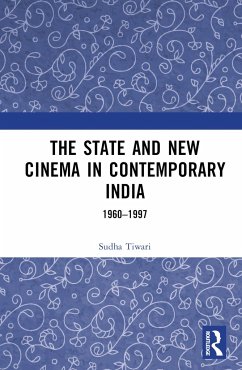
Indian Cinema Today and Tomorrow
Infrastructure, Aesthetics, Audiences
Herausgeber: Srinivas, S. V.; Chatterjee, Subhajit; Radhakrishnan, Ratheesh
Versandkostenfrei!
Versandfertig in 1-2 Wochen
52,99 €
inkl. MwSt.

PAYBACK Punkte
26 °P sammeln!
Cinema has been, and is, a powerful tool for social mobilisation. The political importance of cinema was of course always well-known and has continued to evolve and grow. However, with innovations in modern technology, there has been the exponential growth of television alongside the movies, as well as social media.














